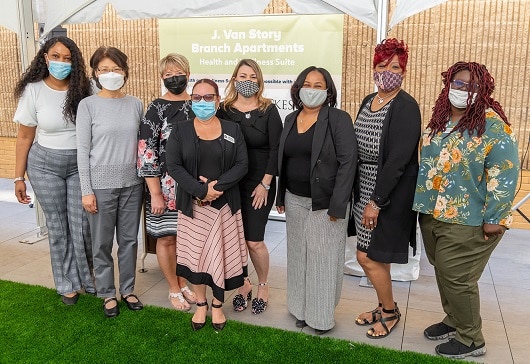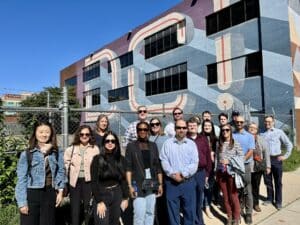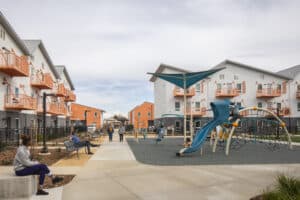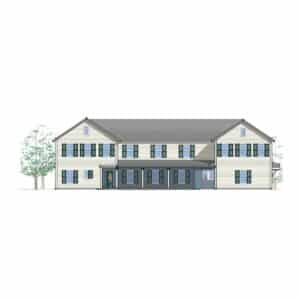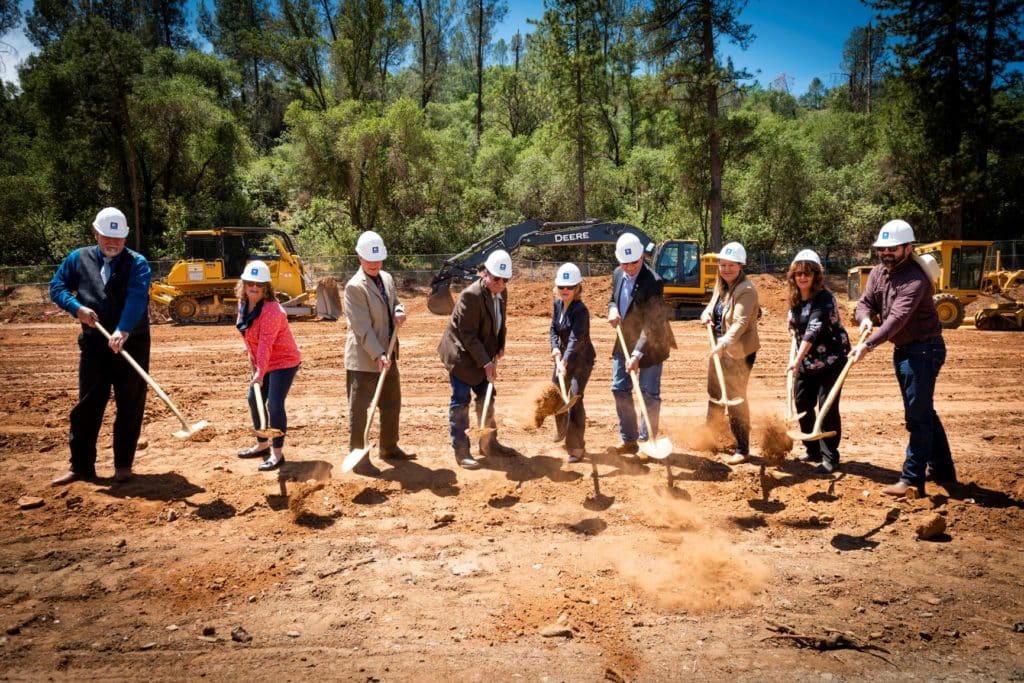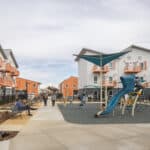Community Housing Partners (CHP) provides stable homes for more than 11,000 people in six states. But their impact reaches far beyond their nearly 7,000-unit multifamily portfolio. They are also the largest nonprofit weatherization provider in Virginia.
Since CHP’s founding in 1975, they have invested $680 million in local communities through real estate development. CHP’s Energy Solutions program has provided weatherization, training, and utility services to support the residents of more than 55,000 homeowners in 66 localities in Virginia. Jeff Reed, President of CHP, has served on the NeighborWorks Capital board and Finance Committee since 2013.
Energy Solutions for Healthy Homes
Energy Solutions started with volunteer labor and donated materials to provide weatherization and emergency home repairs for low-income families. Since 2009, CHP Energy Solutions has grown from 25 staff with a budget of $2 million, to 130 staff and a $40 million budget in 2022.
Funds from the U.S. Department of Energy help CHP weatherize homes across 35% of Virginia, making Energy Solutions is the largest weatherization provider in the commonwealth. Their Energy Solutions Research & Training Center trains building science professionals in 20 states around the country, and works with about 2,000 students per year throughout the U.S., Canada, and Latin America. They’ve even opened three satellite training centers in Latin America.
Their utility services started with a slew of small pilot programs, and now CHP is an implementer for large utilities such as Appalachian Power and Washington Gas. They served about 12,000 homes from 2015-2021.
Connecting Health and Home
The Energy Solutions project is just part of CHP’s overall focus on providing healthier homes for families and individuals.
“There’s a deep connection between weatherizing a home and improved health; many national surveys show multiple benefits, everything from less illness to more days in school and work,” said Mark Jackson, Vice President of Energy Solutions.
Health outcomes are part of CHP’s strategic plan, and include stable housing for low-income families, aligning housing and services with health programs, and delivering services that result in healthier environments for residents.
Their Healthy Homes pilot program began in Northern Virginia late last year, working with social workers who could identify health issues created by the condition of the homes. Then, CHP offers health assessments to qualified individuals. They are continuing to learn lessons from the pilot.
Evolving its services to meet needs is integral to CHP’s identity.In the 1980s, CHP expanded into rental housing preservation, along with a whole suite of other services. That’s also when they began outreach to families outside the New River Valley. Their resident services program started in the 1990s. By 2020, CHP’s large multifamily rental portfolio provided more than 11,500 people with stable housing.
“It’s opportunistic evolution: ‘how can we do more?’ Then we’ve naturally evolved along the same core mission, partly due to available funding sources,” said Lance Sutherland, CHP’s Chief Financial Officer. “For example, we recognized we can reach more people with one project if we expand into multifamily. That grew through preservation, rehab, then new construction.”
This is part of how CHP expanded to managing and maintaining more than 100 rental communities through the Southeast and Mid-Atlantic.
Uncovering Opportunities for Sustainability
COVID changed the focus of their Resident Services group. They shifted from managing on-site resources to managing emergency rental assistance from Virginia, working with residents to secure more than $3 million.
“We’ve all had to work as a group, pulling many departments together to get that started. This created a model for how to reach more people in the future in more ways,” Sutherland said.
Their construction continued, with COVID restrictions, including completion of their largest project ever, major renovations of the J. Van Story Branch Apartments in Baltimore, Maryland, a 350-apartment building providing affordable housing to seniors and people with disabilities. It features an on-site Health and Wellness Suite.
During COVID, Energy Solutions also pivoted to stream its training sessions, which brought another benefit.
“[Streaming] helps with our carbon footprint. It’s more sustainable,” Jackson said.
Expanding Into the Future
Sustainability is an important pillar for CHP. Their goal is to become carbon neutral by 2050. They’ve added a new role, Sustainability Program Director, to help ensure a cohesive approach to sustainability across energy solutions, affordable housing and asset management. This cross-cutting position will offer a new, holistic view for CHP.
CHP’s plans for the coming years include new construction, and larger, more dense affordable developments that will see them move into more urban centers. CHP Homeownership, which serves Virginia’s New River Valley, is also trying to reach more homeowners and expanding into single-family development to increase home ownership opportunities.
“In the next few years, we hope to continue our massive expansion of Energy Solutions, including leveraging new funding sources,” Sutherland added. They hope to reach new areas of Virginia, as well as new states.

